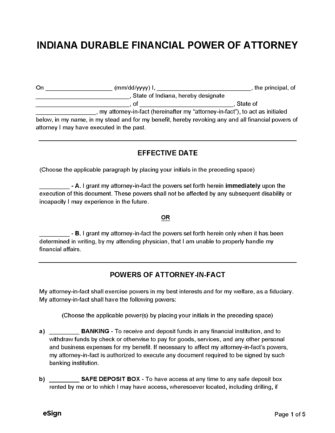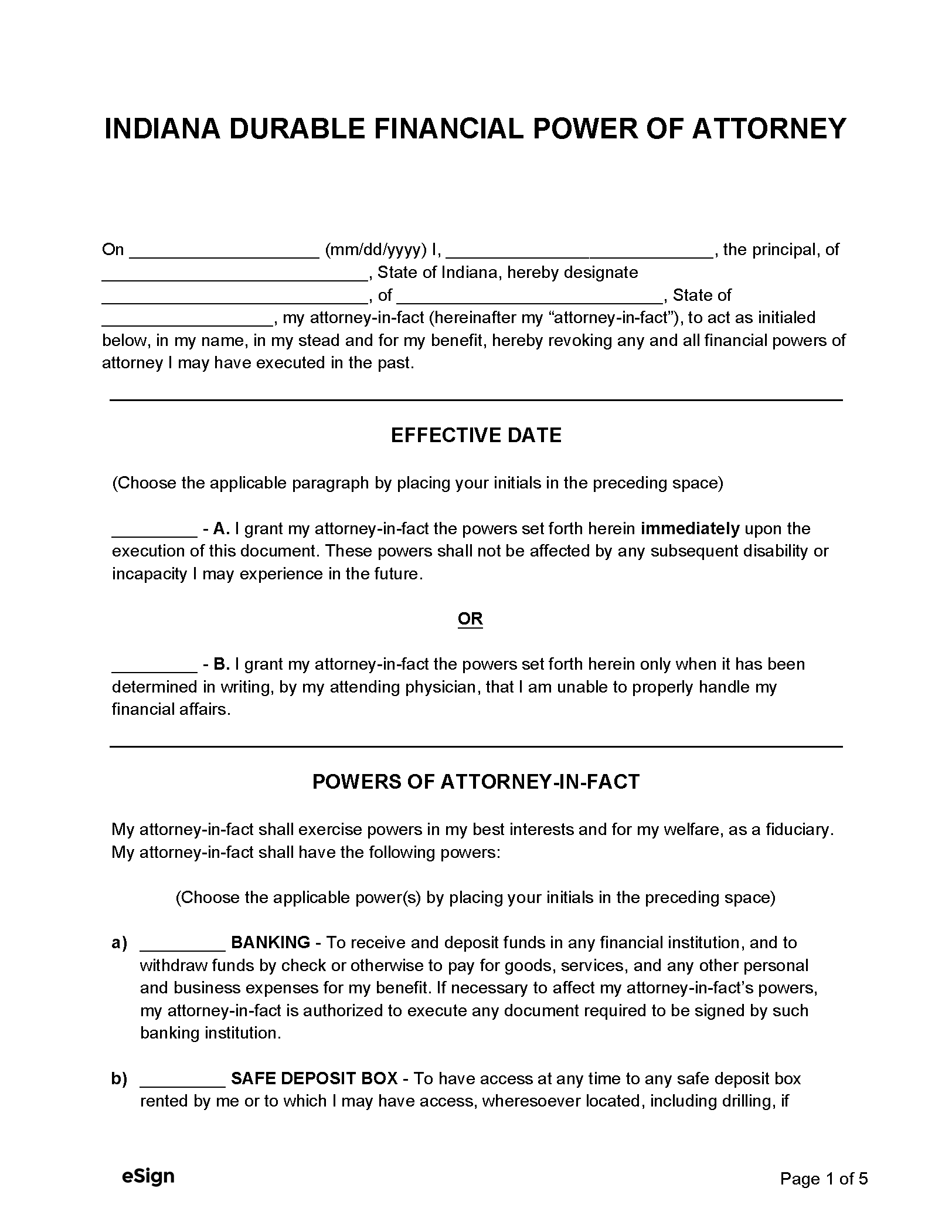By Type (10)
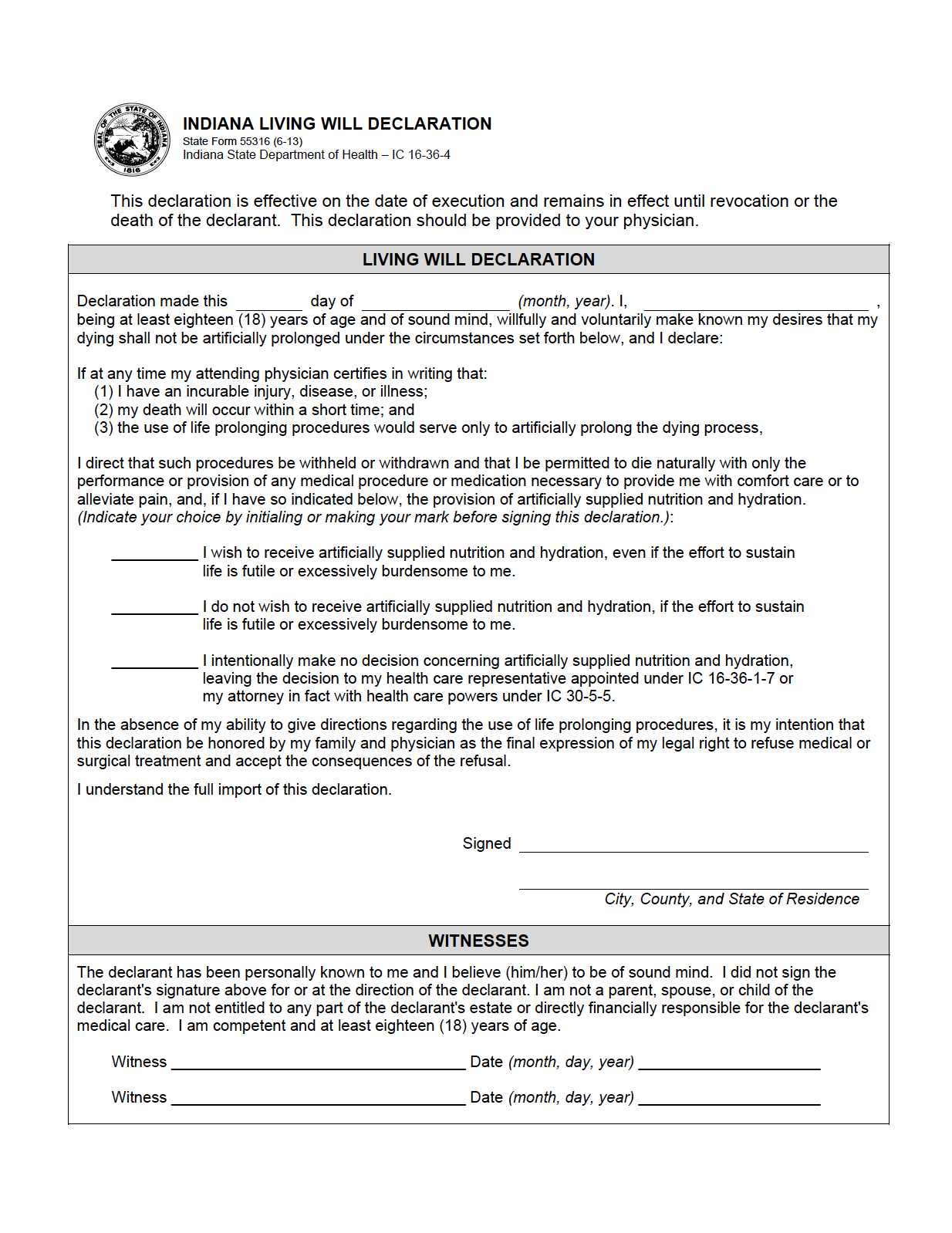 Advance Directive – Directs medical staff regarding an individual’s treatments and nominates an agent who will represent them in their incapacity. Advance Directive – Directs medical staff regarding an individual’s treatments and nominates an agent who will represent them in their incapacity.
Download: PDF |
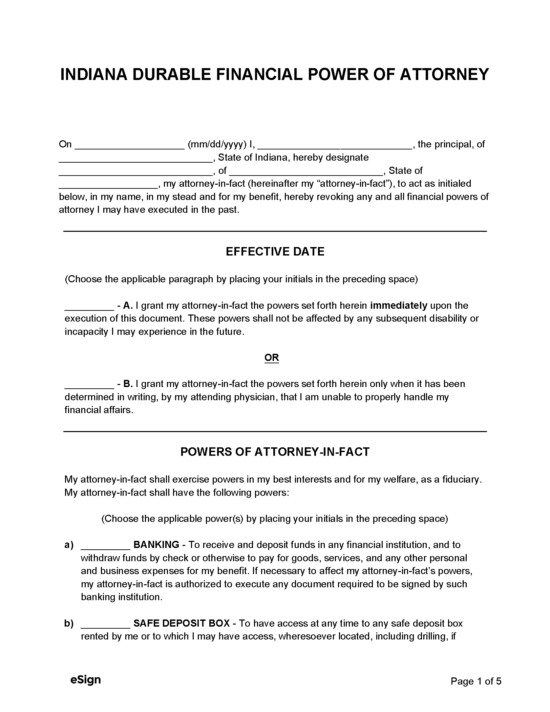 Durable Power of Attorney – Appoints an attorney-in-fact to handle the principal’s finances. This document does not revoke itself if the principal loses capacity. Durable Power of Attorney – Appoints an attorney-in-fact to handle the principal’s finances. This document does not revoke itself if the principal loses capacity.
Download: PDF, Word (.docx), OpenDocument |
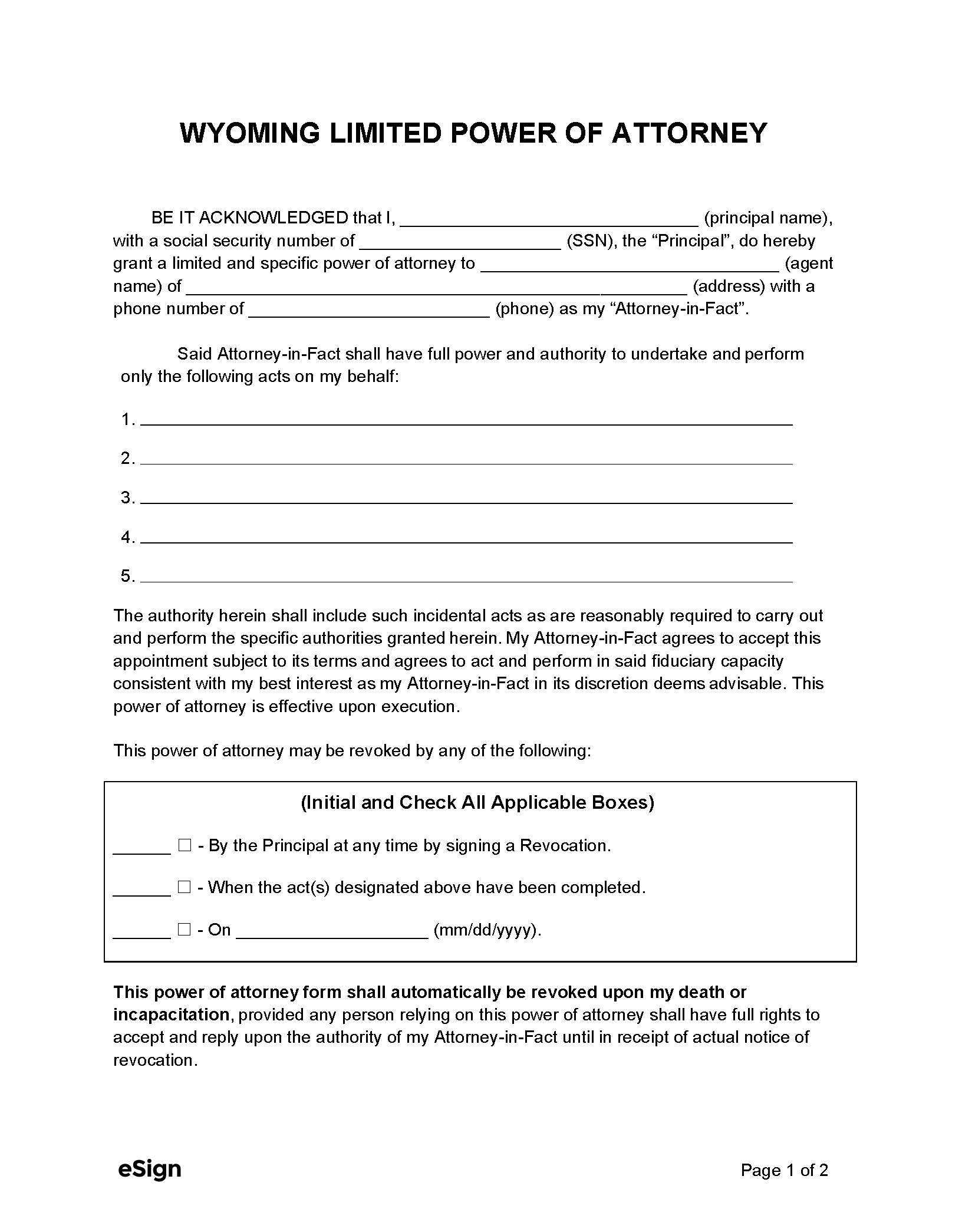 General (non-durable) Power of Attorney – Allows an agent to represent a principal while they have mental capacity. General (non-durable) Power of Attorney – Allows an agent to represent a principal while they have mental capacity.
Download: PDF, Word (.docx), OpenDocument |
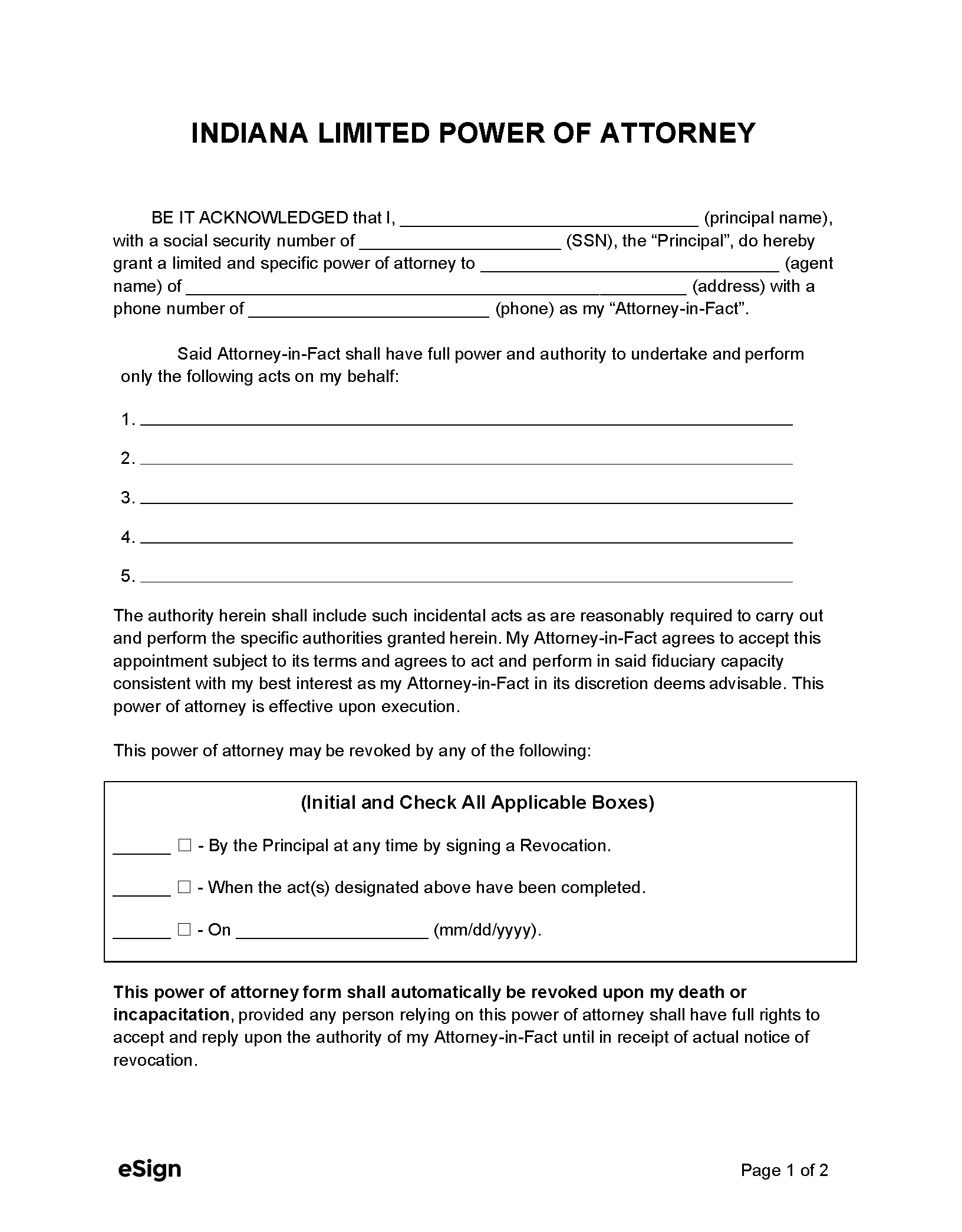 Limited Power of Attorney – Specifies the limited financial acts the agent may perform on behalf of a principal. Limited Power of Attorney – Specifies the limited financial acts the agent may perform on behalf of a principal.
Download: PDF, Word (.docx), OpenDocument |
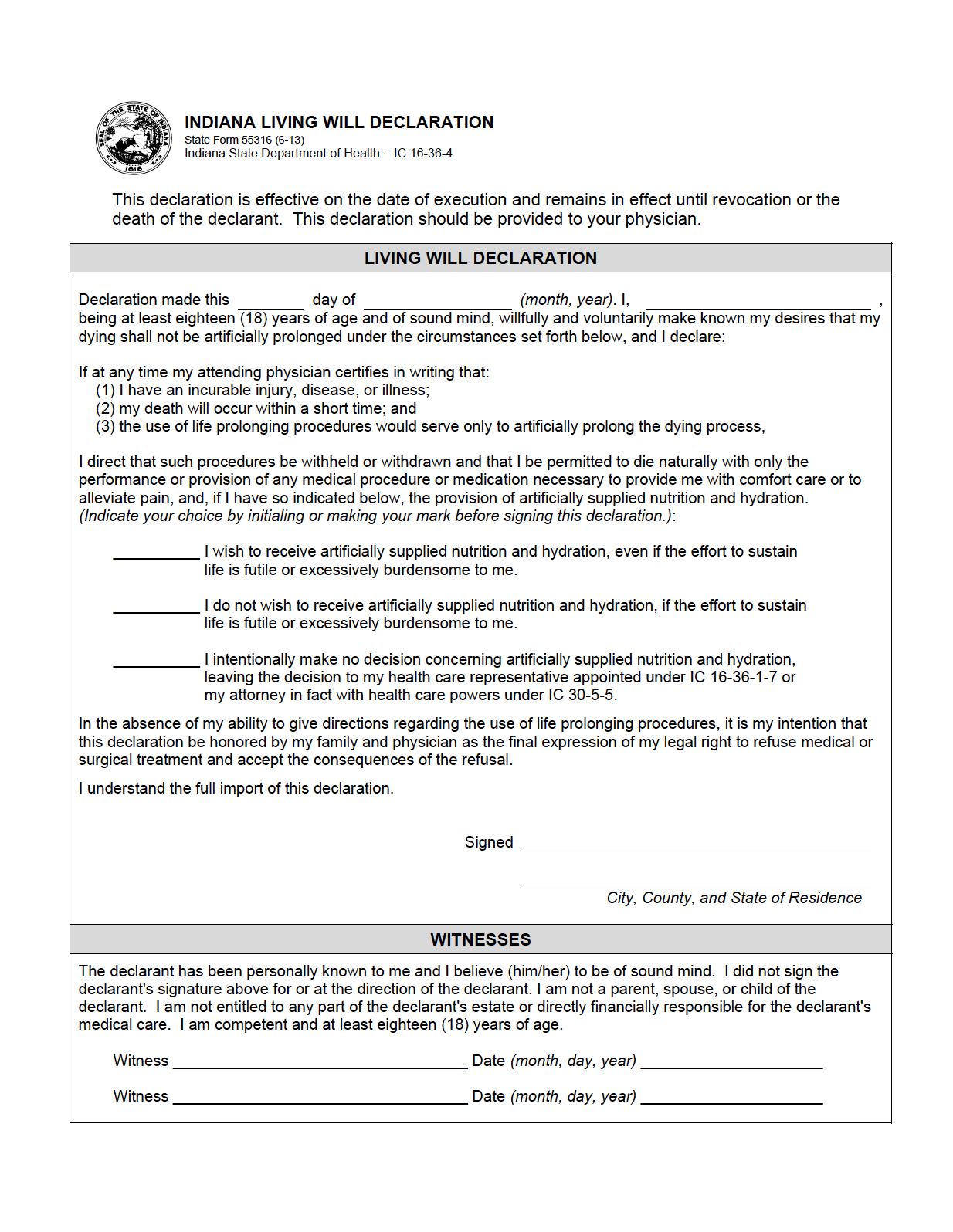 Living Will – Details the treatments that an individual wishes to receive or decline should they become incapacitated. Living Will – Details the treatments that an individual wishes to receive or decline should they become incapacitated.
Download: PDF |
 Medical Power of Attorney – Nominates a trusted individual to represent the principal in health care decisions. Medical Power of Attorney – Nominates a trusted individual to represent the principal in health care decisions.
Download: PDF |
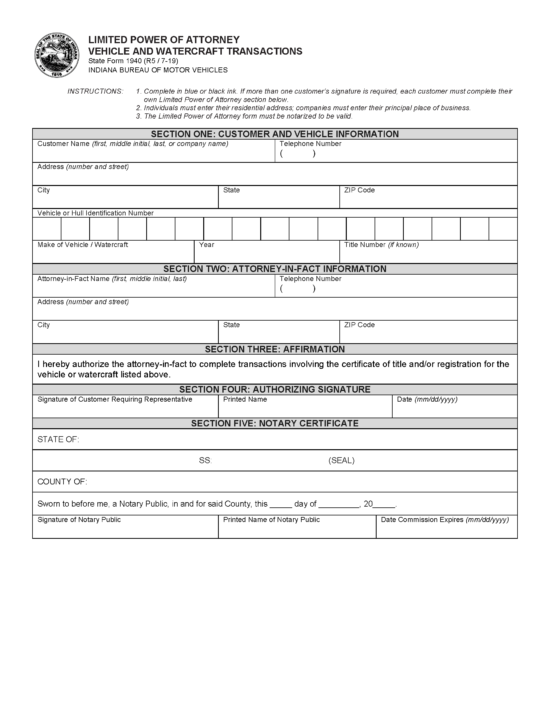 Motor Vehicle (Form 01940) Power of Attorney – Allows an agent to handle vehicle-related matters on another individual’s behalf. Motor Vehicle (Form 01940) Power of Attorney – Allows an agent to handle vehicle-related matters on another individual’s behalf.
Download: PDF |
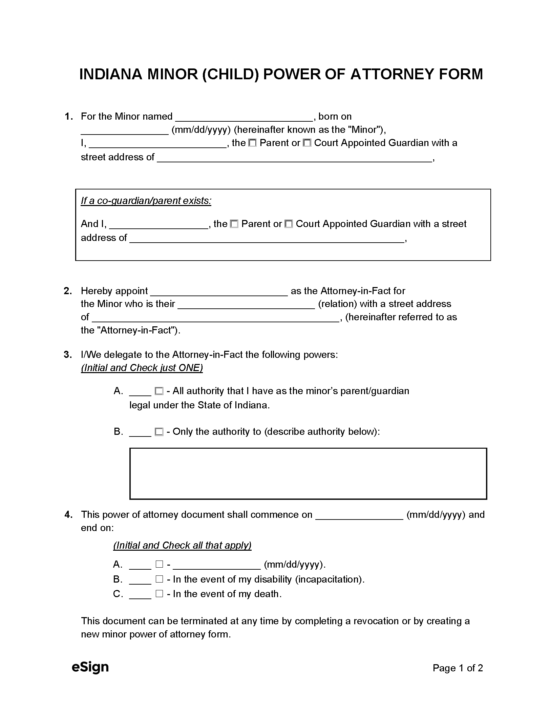 Minor (Child) Power of Attorney – Authorizes an individual to serve as a minor child’s temporary guardian. Minor (Child) Power of Attorney – Authorizes an individual to serve as a minor child’s temporary guardian.
Download: PDF, Word (.docx), OpenDocument |
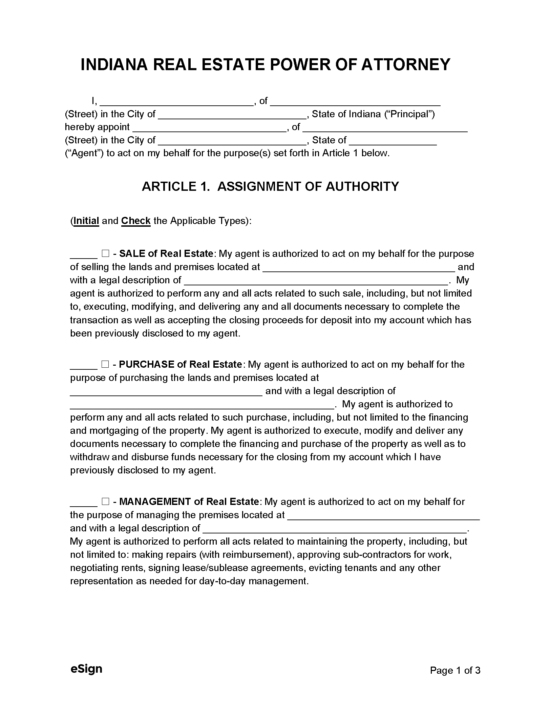 Real Estate Power of Attorney – Delegates all or specific real estate matters to an attorney-in-fact. Real Estate Power of Attorney – Delegates all or specific real estate matters to an attorney-in-fact.
Download: PDF, Word (.docx), OpenDocument |
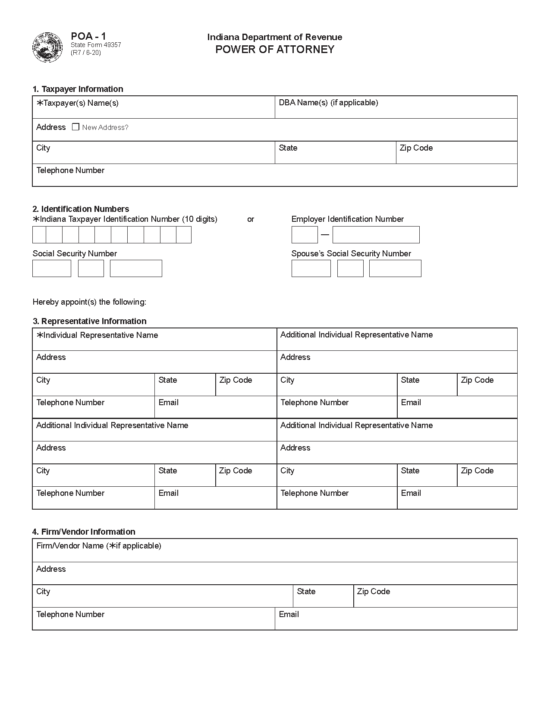 Tax (Form 49357) Power of Attorney – Grants an individual the authority to handle another person or entity’s tax affairs. Tax (Form 49357) Power of Attorney – Grants an individual the authority to handle another person or entity’s tax affairs.
Download: PDF |
